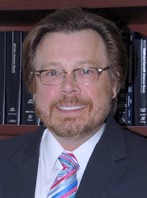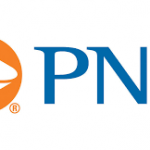Ron Stair is the funniest and most outspoken actuary I ever met and he’s really good at what he does: providing retirement solutions for his clients. It’s always a treat to talk to him.
Q: How did you start in the retirement plan business?
A: Completely by accident. I mean really, who is 18 years old in college and says, “I want to be a retirement planner”? I had a math teacher as an undergraduate who made us take the corresponding actuarial exams as part of the course requirements. We didn’t have to pass, but he wanted us to be exposed to the practical side of math. I had 4 parts completed at the end of my BA and went to work at an actuarial firm while in grad school. ERISA came out and a career was born.
Q: How do you think the TPA business has changed since you started?
A: It’s become too much of a commodity. For and area of the law that is as complicated as it is, price shouldn’t be the first client question. ERISA I was fewer than 300 pages. We have single regulations now that exceed that. We deal with four government agencies writing regulations in a vacuum without regard to each other.
Q: Many plan sponsors don’t understand the value of a TPA, how do you get that message across?
A: It’s difficult. The major brands, whether the mutual fund or payroll companies dilute the value. They for the most part are untrained monkeys, but selling the concept of “It’s Free”. There is a positive experience of dealing with a competent TPA. We will talk with you periodically, reviewing the plan, making sure it is in compliance, proactively making suggestions to improve the plan, etc. We also work with your payroll company, minimizing mistakes.
Plan sponsors are required to be prudent experts but that does not mean they must know how to perform all duties to effectively run a retirement plan. But they must prudently select and monitor those providers. Many smaller plans use a TPA while larger plans may get the customized, personal service from their bundled record keeper. Making the right choice depends on the needs of the company and the employees.
Q: What do advisors and plan sponsors miss out when they only think about 401(k) plans?
A: I’m glad you asked. As you know, we really specialize in the right plan for the sponsor. 401(k)s are only the right plan about half the time. I tell sponsors “I don’t care…not my plan, not my employees, not my money”. Tell me what you want and I will tell you how close we can get there within the law. Sometimes the answer is a plan with 15 degrees of difficulty and other times the client would be better served with a SIMPLE or a SEP. No matter the client, plan design is far more important than anything else as far as I’m concerned.
Q: You’re the funniest actuary I know and one of the best retirement plan speakers, has that ever rubbed people the wrong way for people who expect actuaries to be inarticulate?
A: Yeah, people are sometimes taken aback with my personality and my inability to notice their shoes. They most times expect dry answers in a very pointed manner and get thrown off by the breadth and type of questions I ask. I do tell people not to screw up my planning by living too long.
Q: People talk about the death of defined benefit plans and that’s a big part of your business. How are these people wrong?
A: They’re not dead, just morphed into a different form. The DB plan is simply another tool in our pension tool box. What we are seeing now are plans designed to be around for a shorter time period than in the past. They used to be career plans, but with people not staying in one place, businesses are unwilling to commit to the expense and liability. As such, we are seeing them being used far more in the small employer market where the principals are nearing retirement and looking to accumulate dollars at a more rapid pace as they are winding down their business or with serial entrepreneurs trying to maximize the leverage of tax deferral.
Q: What are plan sponsors missing out with TPAs when they focus just on cost?
A: The commonality in anything being done correctly is time. For us it’s time training my staff. My employees ALL do twice the required CE every year. All our employees are credentialed. As I mentioned earlier, we deal with a bunch of very complex regulations. The third level snuffy at the 800-UGO-AWAY number has minimal, if any training. Training courses are expensive. The lost productivity in the office because people are off training is expensive. But what happens if I don’t train them and they stay here. And how cheap is it really? We appear more costly because we are the only check being written by most plan sponsors. The less expensive providers are taking it out of the assets and the sponsor doesn’t really see the cost. Then there is the DOL whose average penalty last year was in excess of $250K. If you don’t really know the rules, you can’t help clients avoid this exposure. Read the service agreement form the big box vendors. They push all the liability off onto the plan sponsor.
Q: How has fee disclosure impacted your business?
A: It hasn’t much. We have always been transparent. Our fees are our fees. My frustration are the lengths many providers go through to obfuscate the disclosure. Really, it’s free? Nobody likes you that much.
Q: What do you think of payroll providers in the TPA business?
A: If and when they get it right, it’s a complete accident. The misrepresentations as to efficiency and cost are obscene. I think the auditors at DOL and IRS could make a career if they just focused their audit activities on the 2 major players in that space. There is the company that is named after a test they can’t do (Average Deferral Percentage) and the other one that sounds like a breakfast cereal.
Q: Where can people find out more information about your company?
A: At our website…www.cpdltd.com







